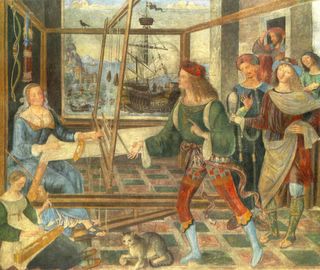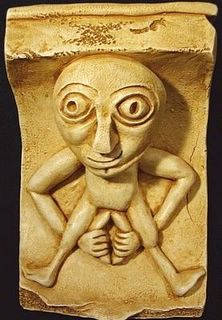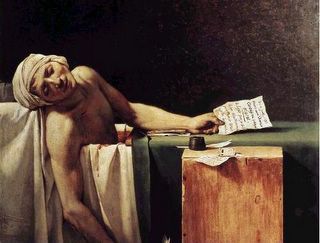just happened to be:
He maintained that the Outer Hebrides was the site of the Garden of Eden. Both he and Eileen therefore recommended that I visit Moira, Eileen’s sister, who lived on Benbecula with her sheep-farmer, fisherman, jack-of-all-trades husband, Willy the Muc. Ever restless, I decided to go, but would start with a visit to the small isle of Barra, one of the southernmost islands.
Barra turned out to be nearly as beautiful as Horst had waxed. Perhaps he was related to Robert the Bruce after all. The island is only a few miles in circumference and can be covered on foot in a day. I arrived in the village of Castlebay, where the ferry docks, and walked westwards, past a modern hotel where the Shah of Iran had apparently (F6) sent his family after the 1978 Islamic revolution. The path then led down to a wide expanse of white beach, which was used as an airstrip for flights from Glasgow and made of shells that had been pounded by the breakers. At the northern end of the island I hitched a ride in a leaky rowing boat, past colonies of Grey (Halichoerus grypus) and Common seals (Phoca vitulina) and over to the next island, South Uist. From there I thumbed lifts in a mobile library and street lamp repair machine to Moira and Willy the Muc’s croft. They asked me to stay in the house but I preferred to pitch the tent.
Since “Muc” means pig in Gaelic I initially assumed Willy had been given his name because of deficient personal hygiene. However, he insisted it came from the time he had been accused of pig rustling in Ayrshire, an offence he neither denied nor admitted. Moira was a small woman with a big heart and Willy a huge equally big-hearted and more bear- than pig-like man whose belly projected between a perpetually too-short T-shirt and his trousers.
At 10 o’clock Willy told me we’d better be off to the ferry. I wouldn’t usually have got in a vehicle with a driver whose alcohol/blood volume ratio had undergone such a drastic booze-induced transformation, but there were only two ferries a week from Lochboisdale to Oban and I didn’t want to miss mine. Moreover, the single lane roads of Benbecula and South Uist would probably see no other driver until the following Monday. We got into his battered old Mini van that reeked of fish, sheep and illegal still. I settled onto the three-legged passenger stool and Willy snuggled down onto the wooden driver’s crate. As we drove I wondered why a street lamp repair machine travelled the roads of South Uist when there were no street lamps.
We arrived in Lochboisdale where I boarded the ferry, accompanied by Willy the Muc. We went down to a small cabin where he pulled a bottle of whiskey from his pocket.
“Just one for the road.”
The next morning I emerged from the cabin and went up on deck to breathe the sea spray and let the fresh wind liven me up. Just as we were sailing past the Isle of Mull, Willy appeared looking groggy. The boat back to South Uist didn't leave till Tuesday.
“Uggggh, ” he groaned. “Moira’ll kill me!”





















